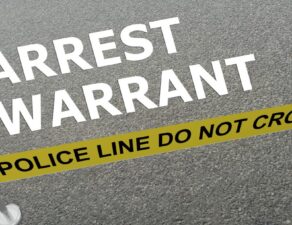
White-collar crime is a nonviolent crime that’s committed for financial gain. The FBI says that “these crimes are characterized by deceit, concealment, or violation of trust.” Those who perpetrate such crimes are motivated “to obtain or avoid losing money, property, or services or to secure a personal or business advantage.”
While these crimes are non-violent, they aren’t victimless crimes. A single scam can ruin a company, wipe out a family’s life savings, or cost investors billions of dollars.
What Are Common White-Collar Crimes?
These are some of the most frequently perpetrated white-collar offenses:
Securities Fraud. Also known as Stock or Investment Fraud, this is a type of white-collar crime that can be committed in a variety of ways but primarily involves misrepresenting information that is used by investors to make decisions.
Embezzlement. This is when a person or entity misappropriates the assets entrusted to him or her. Here, the embezzler attains the assets lawfully and has the right to possess them, but the assets are then used for unintended purposes. Embezzlement is most frequently associated with the misappropriation of money. A common type of embezzlement is known as cash skimming. That’s where a cashier or bartender puts money collected from a sale in their own pockets rather than putting it in the cash register.
Corporate Fraud. Most corporate fraud cases involve illegal activities undertaken by an individual or company that are conducted in a dishonest or unethical manner. This type of business fraud frequently is designed to give an advantage to the illegal actor. There are many types of corporate fraud, such as falsified accounting and misrepresentation of a company’s services or products.
Money Laundering. This is the process of taking cash obtained through illicit activities, such as drug trafficking or another crime, and making the cash appear to be legitimate earnings from legal business activity. Money from the illicit activity is considered “dirty,” and this process “launders” the money, moving it from one account to another or but purchasing goods to make it look “clean.”
Racketeering Influenced and Corrupt Organization Act (RICO). RICO is a federal law aimed at thwarting organized crime in the U.S. It provides for prosecution and civil penalties for racketeering activity performed as part of an ongoing criminal enterprise. These activities may include (but aren’t limited to) illegal gambling, bribery, kidnapping, murder, money laundering, counterfeiting, embezzlement, and drug trafficking.
Credit Card Fraud. The FBI says that credit card fraud is the unauthorized use of a credit card, debit card, or similar payment tool (such as EFT or electronic funds transfer) to fraudulently obtain money or property. In addition, credit and debit card numbers can be stolen from unsecured websites or can be obtained in an identity theft scheme.
Healthcare Fraud. This can involve obtaining illegal funds by manipulating billing processes or patient care. Fraud diverts the resources designed to pay for the care of patients and other beneficiaries into the hands of fraudsters. This can include misrepresentation of the type or level of service provided; misrepresentation of the healthcare professional rendering service; and invoicing for items and services that haven’t been rendered or that are not medically necessary.
Medicare or Medicaid Fraud. This is a type of healthcare fraud in which these government programs are defrauded. An actor may incorrectly bill the program for reimbursement or make false claims to gain more funds from the program.
White-collar crime also includes insurance fraud, forgery, mail fraud, real estate fraud, and mortgage fraud, as well as many others.
What are the Penalties for White Collar Crimes?
White-collar crime is taken very seriously by law enforcement in Florida. One reason is that Florida is considered a haven for white-collar crime in the United States.
As a result, the penalties for white-collar crimes in Florida can be harsh. The type of penalty is based upon the nature of the crime and the amount of money involved. White-collar crime can be prosecuted as either a misdemeanor or a felony.
Misdemeanors. An individual charged with a first-degree misdemeanor faces a fine of up to $1,000 and a year in prison. The penalty for a second-degree misdemeanor is up to a $500 fine and 60 days in jail.
Felonies. White-collar offenses that are classified as third-degree felonies have penalties up to $5,000 and up to five years in prison. Second-degree felony charges for white-collar crimes can carry a jail term of up to 15 years and a $10,000 fine. First-degree felonies carry a fine of up to $10,000 and a sentence of up to 30 years to life in prison.
Multiple Offenses. It’s important to note that white-collar crimes are rarely a one-off single event; they are typically a series of numerous offenses. As a result, if a defendant commits two or more offenses that are related for a gain of $50,000 or more, he or she can be charged with a first-degree felony with extended penalties of a $30,000 fine and 30 years in jail.
What are the Common Defense Strategies for White Collar Crimes?
It’s the prosecution’s job to prove each element of the crime. For example, to be guilty of mail fraud, the prosecution must prove both of these elements:
- Devising or intending to devise a scheme to defraud (or to perform specified fraudulent acts), and
- The use of the mail for the purpose of executing, or attempting to execute, the scheme (or specified fraudulent acts).
The experienced criminal defense attorneys at McLean & Mitchell will determine if the prosecution has the evidence to satisfy each of the elements of the crime. Part of this investigation by the criminal defense attorneys at McLean & Mitchell is to examine the evidence collected by the prosecution. The state or the federal government cannot prove its case if it fails to satisfy every element of a crime.
Our white-collar criminal defense attorneys will look for weaknesses in the prosecution’s case. For example, the accused may not possess the requisite criminal intent to commit a crime. It may have been a mistake of fact or of the accused’s misunderstanding of the facts of the situation. Without intent, the accused will be found not guilty.
Takeaway
It’s important to emphasize that white-collar crime is taken very seriously in Florida. And the consequences of a white-collar criminal conviction are devastating, and they have the potential to negatively affect all areas of your life.
When arrested for a white-collar crime, you need to hire a criminal defense attorney to represent your interests and protect your rights throughout the process. McLean Mitchell will fight for your rights. Contact the criminal defense attorneys at McLean & Mitchell to discuss your case in a free consultation.
Our attorneys were former state prosecutors and know the inner workings of Florida’s criminal justice system. McLean & Mitchell are experienced, qualified criminal defense experts in Tampa, Florida. We fight for your rights.









